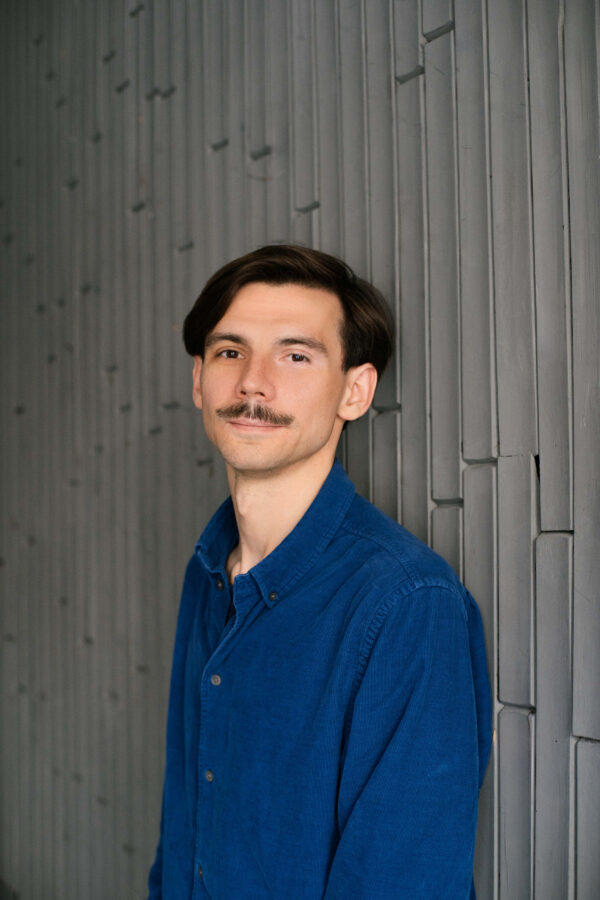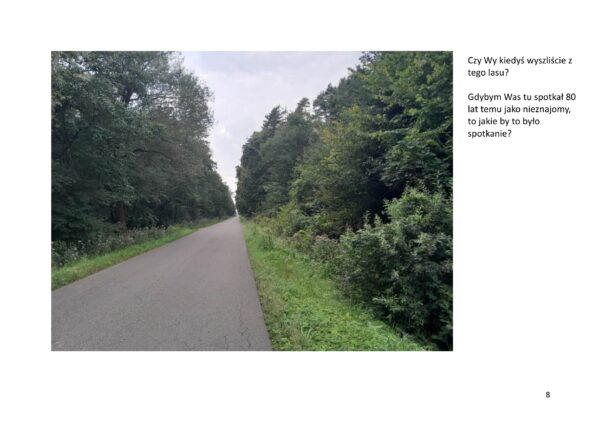Paweł Knut

During the residency, I want to reflect on a new format for my writing. The themes of my work will be related to the war in Ukraine and its significance. The starting point will be to examine my family history and reflect on how the personal/subjective fits into current macro-level struggles. I plan to write a reportage or essay based on an analysis of family memories, i.e. Polish and Ukrainian people caught up in the Second World War and subsequently resettled in the ‘Reclaimed’ Lands. As part of the process, I want to visit places that are important to this story. The trips would allow me to go beyond the context in which I function daily (as a parent/husband/researcher) and look at this history and myself differently (as a Pole-Ukrainian/Ukrainian-Polish). Based on my past experiences and the aid trips I have made to the Belarusian and Ukrainian borders, I know that such trips help me to listen to myself. Over the years, in my writing and activism, I have dealt with issues in which I was not personally involved in. During the residency I would like to reverse these vectors and turn the focus on myself.
I research and describe the phenomenon of discrimination and prejudice. In 2023 I defended my doctoral thesis on hate speech at the Faculty of Artes Liberales, University of Warsaw. I am a graduate of the Polish School of Reportage. I write essays and reportages for, among others, Dwutygodnik, Oko.press and Res Publica Nowa magazines. I am from Słupsk and live in Warsaw.
Paweł’s residency is summarised in a journal in the form of a short zine. Each Warsaw Observatory of Culture (WOK) residency has a unique dimension, and the participants’ personal accounts of their experiences reflect this diversity.
Motivation
I came to WOK with a strong desire for change that had been growing inside me for a long time. I wanted to plan my daily work differently and think about how I could rearrange the different activities I am involved in. After all, I am one-third advocate, one-third researcher, and one-third writer. However, in all of these roles, my interests revolve around the same thing: studying the discrimination and exclusion of different vulnerable groups.
When I started my residency, I felt that the way I had been working on this topic was no longer viable. Especially after defending my PhD, I felt a lot of fatigue with my research work. So, I came to WOK to use these few months of residency to think about how to express what was on my mind differently. I wanted my writing to be more personal and intuitive and to make more room for chance and adventure. I felt that such a reorientation would allow me to better prepare myself for the project I am currently working on, telling the story of my Polish-Ukrainian family.
The process of slowing down
As part of my residency, I spent a week travelling around Poland, following in the footsteps of my ancestors. My mother accompanied me. This adventure took me entirely out of the context in which I work every day in Warsaw. It took me away from my professional and family obligations, discipline and routine. It opened doors in my mind that are simply inaccessible to me daily.
My takeaways from the residency
The temporary community formed by the residency participants and our regular conversations was a truly unique experience. I took a lot for myself from the processes of others, often relating to their dilemmas and challenges. Moreover, there was no obligation to produce something new. The residency coordinators kept reminding us of this, which I found difficult to understand, especially at the beginning of the programme. I was used to a different logic: when an institution gives you something, especially money, it expects something in return. WOK did not expect anything, but instead gave me something very valuable, which was time to stop and think about how to do things in a different, new way. It gave me a lot of space to experiment. Now I am ready to put what I have learned into practice.








